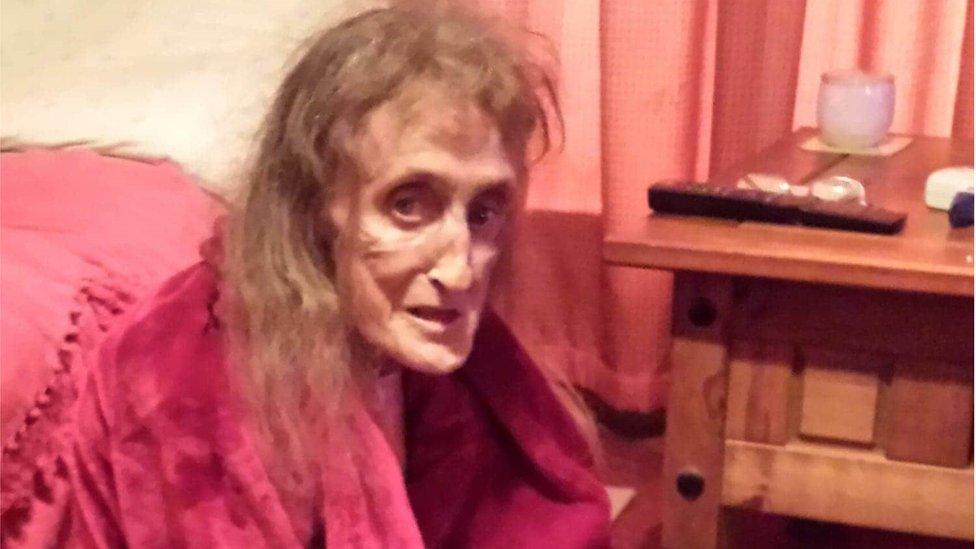Benefit cuts for disabled people in hospital called unfair
- Published
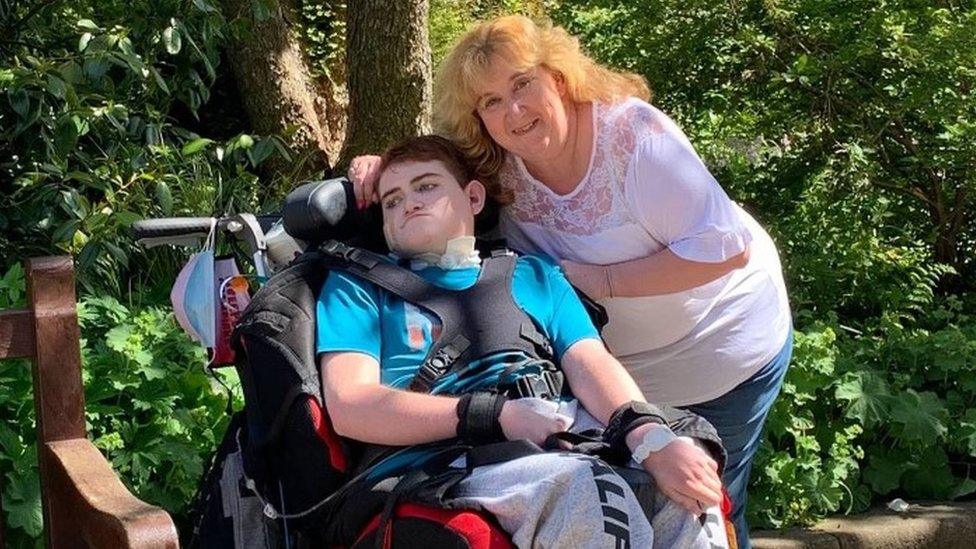
Cameron Mitchell's mother said his benefits were stopped while the hospital relied on her to help with care
Thousands of disabled people have had their benefits paused during extended hospital stays under a rule charities say penalises the most vulnerable.
It comes after a court case was withdrawn which had been set to challenge the lawfulness of the so-called hospitalisation rule.
One affected family lost more than £5,000 in benefit payments while their disabled son was in hospital.
The government says it costs the state twice to pay benefits to patients.
Under the rule, people who claim Personal Independence Payment (PIP) have their payments suspended if they receive care in hospital for 28 days or more.
'We have struggled through'

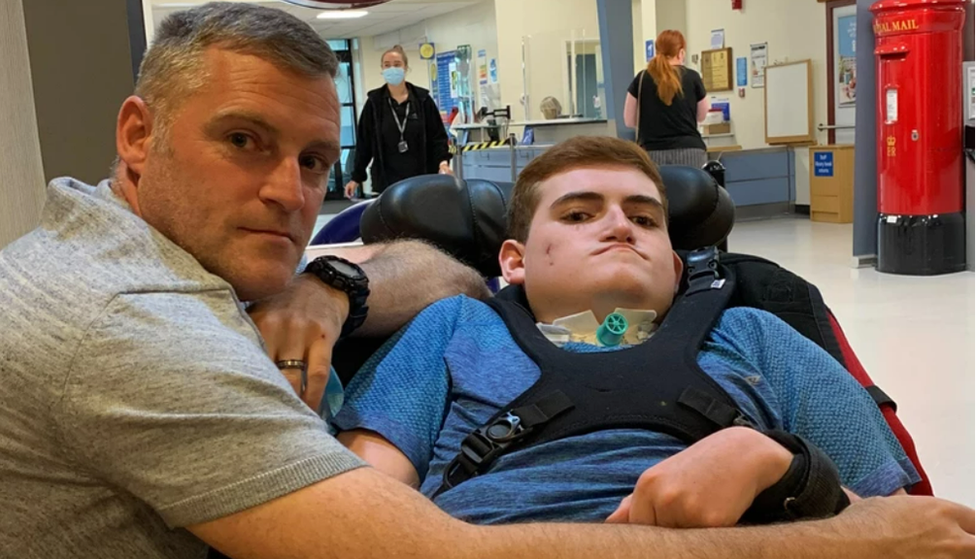
Cameron Mitchell, aged 21, from Carlisle, cannot walk or speak, has seizures and muscle spasms and is fed through a tube. He has the mental age of a baby of around six months old.
Mr Mitchell received PIP and his mother and carer - Nicola Clulow - received a Carer's Allowance.
In December, 2020, Mr Mitchell was admitted to the Royal Victoria Infirmary in Newcastle, with sepsis, multi-organ failure and pneumonia.
He remained an inpatient for 185 days, before moving to a hospice. He was discharged home in June 2022.
Ms Clulow - communicating on her son's behalf - said benefit payments were stopped while Mr Mitchell was in hospital, which was 1.5 hours' drive from the family home.
During that time, hospital staff asked her to spot when Mr Mitchell was about to have a seizure, to interpret his pain, to feed him through a tube and to be available at all hours to assist with his care when asked.
The family said they lost more than £5,000 in benefit payments while spending about £100 per week on food and transport.
"We have had to struggle through in order to ensure all of Cameron's needs are met. To meet Cameron's needs is not a 'choice' - it is a requirement to keep him safe and to allow him to lead a dignified life," Ms Clulow said.
The family had sought a judicial review of the current regulations, but the case has been withdrawn.
Learning disability charity Mencap's head of policy, Dan Scorer, said people with profound and multiple learning disabilities (PMLD) were "more likely to fall foul of the 28-day rule".
Mr Scorer said the charity would continue to work with those affected to "challenge its fairness".
Jonathan Beebee, the Royal College of Nursing's professional lead for learning disability nursing, said people with PMLD had "complex unique communication needs".
"They often rely on close relations with people who know them well to understand and interpret what they are expressing," he said.
"These communication needs cannot be replaced by hospital staff when they are admitted to hospital, and their carers cannot stop caring. If they do their needs will likely be neglected."
Carolin Ott, the solicitor at law firm Leigh Day, which represented Mr Mitchell, said: "Our client's case was withdrawn due to a change in his personal circumstances.
"However, that change in circumstances did not alter the underlying issues put forward in our client's case that the hospitalisation rule is unlawful, in particular on the basis of its impact on social and dignity-related needs, and access to an adapted mobility vehicle, external."

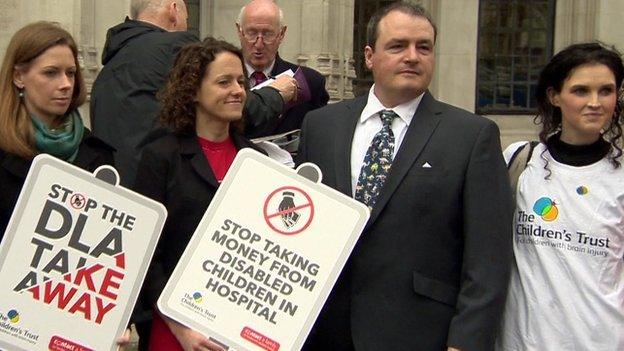
Supporters of the Mathiesons took part in a demonstration outside the Supreme Court before the hearing
Campaigners seeking to overturn the "hospitalisation rule" cite the case of Cameron Mathieson.
Cameron was five years old when his Disability Living Allowance, the benefit PIP is replacing, was stopped after he spent more than 12 weeks in Alder Hey Hospital, Liverpool.
Cameron Mathieson's family fought and won a four-and-a-half-year legal battle which went to the Supreme Court.
Judges agreed the Department for Work and Pensions (DWP) had been "grossly unfair" when it stopped his payments.
Cameron, from Warrington, Cheshire, died in 2012. He had cystic fibrosis and Duchenne muscular dystrophy, among other conditions.
Cameron's father, Craig Mathieson, said: "The state is trying to claw back money it never spent in the first place because it's never been true disabled people's needs have been met by the state while they are in hospital."
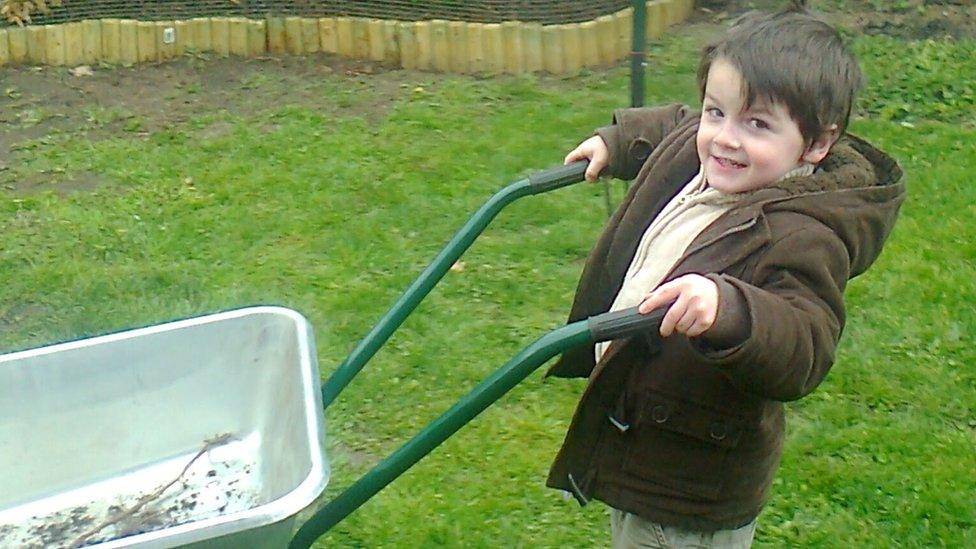
The Mathiesons' solicitor said after the 2015 judgement, 500 families had been affected by the 84-day rule
The BBC Shared Data Unit analysed figures released under the Freedom of Information Act over the past three years.
It found:
The total number of PIP suspensions under the hospitalisation rule in Great Britain increased from 30,860 in the quarter to the end of April 2020, to 45,850 in the quarter to the end of April 2022
The highest numbers of PIP suspensions were for people with mental health conditions
Rheian Davies, from the charity Mind, highlighted two situations where people with mental health conditions who were hospitalised would still require payments.
The Mental Health Act allowed for people under section to have a leave of absence from hospital, she said. Without financial support, it could be difficult for them to afford necessary services such as transport.
The DWP said it was possible to pay a daily rate to somebody in this position.
Secondly, Ms Davies said the hospitalisation rule affected people in long-term placements in community hospitals, who were denied the same financial support as those who lived at home or in a residential facility.
The DWP said it was "committed to ensuring that disabled people get all the support to which they were entitled".
A spokesperson said it was a "long-standing rule" not to pay people in hospital for more than 28 days "to avoid double provision from public funds."
Suspensions "still formed a very small proportion of the overall PIP caseload", they said.

More about this story
The Shared Data Unit makes data journalism available to news organisations across the media industry, as part of a partnership between the BBC and the News Media Association.
For more information on methodology, click here, external. For the full dataset, click here, external. Read more about the Local News Partnerships here.
Additional data analysis by Molly Wilshaw
Related topics
- Published19 October 2021
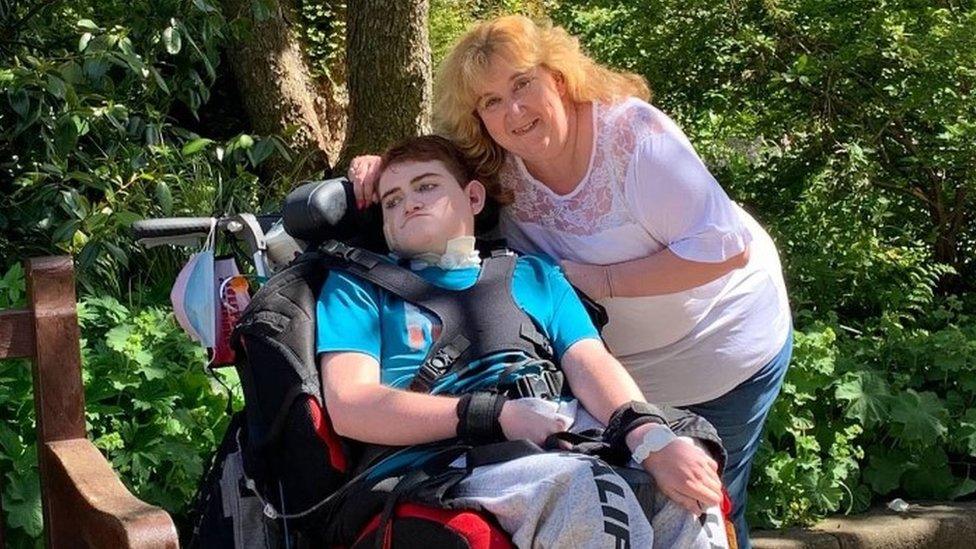
- Published8 July 2015

- Published8 November 2021
